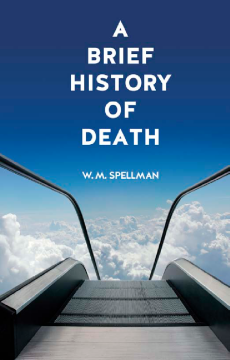
Additional Information
Book Details
Abstract
As humans, death—its certainty, its inevitability—consumes us. We make it the subject of our literature, our art, our philosophy, and our religion. Our feelings and attitudes toward our mortality and its possible afterlives have evolved greatly from the early days of mankind. Collecting these views in this topical and instructive book, W. M. Spellman considers death and dying from every angle in the Western tradition, exploring how humans understand and come to terms with the end of life.
Using the work of archaeologists and paleoanthropologists, Spellman examines how interpreting physical remains gives us insight into prehistoric perspectives on death. He traces how humans have died over the centuries, both in the causes of death and in the views of actions that lead to death. He spotlights the great philosophical and scientific traditions of the West, which did not believe in an afterlife or see the purpose of bereavement, while also casting new light on the major religious beliefs that emerged in the ancient world, particularly the centuries-long development of Christianity. He delves into three approaches to the meaning of death—the negation of life, continuity in another form, and agnosticism—from both religious and secular-scientific perspectives.
Providing a deeper context for contemporary debates over end-of-life issues and the tension between longevity and quality of life, A Brief History of Death is an illuminating look at the complex ways humans face death and the dying.
“After the spate of near-death and out-of-the-body experience books comes this refreshing step back to examine the nature of the death experience culturally, historically, psychologically, and personally. . . . Recommended reading as an antidote to modern life.”
— Fortean Times
“A Brief History of Death has a great deal to offer: a historian-magpie’s collection of hundreds of engaging topics that readers can dip into.”
— Guardian
“In a short narrative, Spellman packs abundant reflection.”
— Spectrum Culture
“A rich and sweeping account of how death has reflected and shaped human life since pre-history.”
— Raphael Hogarth, Times Literary Supplement
W. M. Spellman is professor of history at the University of North Carolina at Ashville and the author of many books, including Monarchies 1000–2000 and Uncertain Identity: International Migration since 1945, both published by Reaktion Books.
